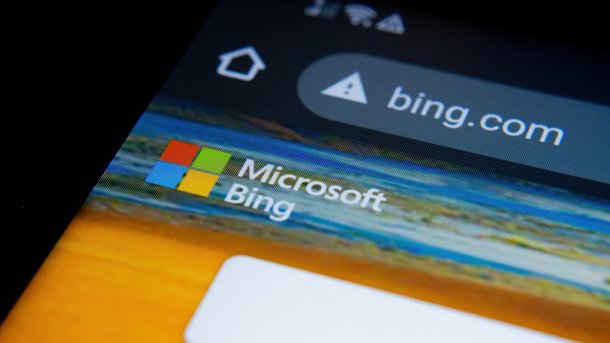Microsoft adds generative AI results to Bing search engine
The new "Generative Bing Search" puts AI results at the forefront of Microsoft's search engine. Traditional search results are pushed to the margins.

(Image: mundissima/Shutterstock.com)
Microsoft is redesigning the results page of its Bing search engine, bringing generative artificial intelligence (AI) to the fore. The new "Generative Bing Search" shows AI-generated results prominently on the left-hand side, while traditional Bing search results are placed in a much narrower column to the right. This function is currently reserved for a limited number of users, but will be rolled out further in the coming months. Interestingly, Microsoft does not even mention its co-pilot here.
At the beginning of 2023, Microsoft upgraded Bing and Edge with AI, allowing users to be assisted by an AI chatbot. The company later named its AI assistant Copilot. Microsoft then developed its generative AI search for Bing based on the corresponding language models. However, Copilot itself can still be accessed in the top tab bar if the user wants to communicate with the AI chatbot.
Videos by heise
The new results page shows an AI-generated, summarized answer to the search query at the top. According to the Microsoft blog, Bing's generative search produces a "customized and dynamic response" from large and small language models based on millions of sources. Some sources are linked below the summary. Below this, Bing places further information that could be related to the search query. An index on the left-hand side allows direct access to this, while traditional search results are listed on the right.
According to Microsoft, the company is aware that internet providers and website operators are concerned that AI-generated search results in a detailed presentation are costing website visitors because this information is sufficient for many users. The company is monitoring the effect of its generative search on the traffic of information sources. However, initial analyses show that the number of clicks on linked websites remains the same with the generative Bing search compared to traditional search engines. Feedback from the first users should help with the further development of Bing search.
Alongside Microsoft, Google is also testing an AI-based search. This "Search Generative Experience" summarizes long web pages and is intended to help users process complex topics more easily. However, after Google's AI search recommended malvertising and malware SEO and gave outrageous AI answers, Google had to make manual adjustments and restricted the function again. AI search is currently not offered to all Google users.
(fds)